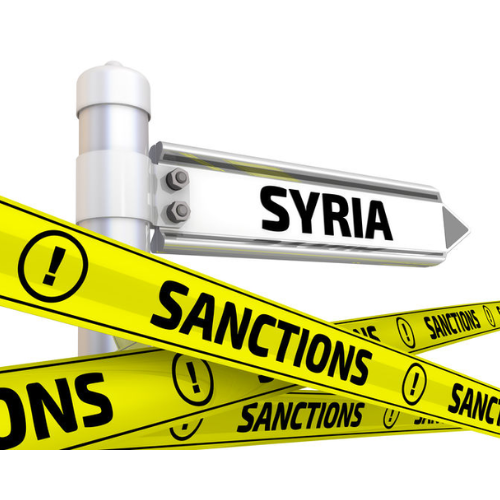The European Union (EU) has announced strong new sanctions against three Syrian militia groups and two of their leaders. This move comes after deadly violence in March that killed more than 1,700 people, most of whom were from Syria’s Alawite community. The EU says these attacks were part of a wave of ethnic violence carried out by armed groups in the country’s coastal region.
The three militia groups now facing EU penalties are the Sultan Sulaiman Shah Brigade, the Hamza Division, and the Sultan Murad Division. All three groups are known to be pro-Turkish and have been active in northern Syria during the civil war. According to the EU, they were involved in targeting Alawite civilians, committing acts such as arbitrary killings—which means killing people without legal reason or trial.
Two militia leaders were also named. One is Muhammad Hussein al-Jasim, the founder of the Sultan Sulaiman Shah Brigade. The other is Sayf Boulad Abu Bakr, the commander of the Hamza Division. The EU accused Abu Bakr of being responsible for serious human rights abuses, including torture and killing innocent people. Both men have now been added to the EU’s official sanctions list, which means their assets can be frozen and they are banned from entering EU countries.
These measures were published in the EU’s official journal and are part of a focused attempt to punish those responsible for ethnic violence and human suffering.
Rebuilding After Ruin: U.S. Revokes Sanctions, Greenlights Business With Post-Assad Syria
Syria’s Long War and Rising Ethnic Tensions
Syria has been in conflict for over 14 years. What started as protests against the government turned into a full-scale civil war, involving multiple groups and foreign powers. During this time, hundreds of thousands have died, and millions have been forced to leave their homes.
The Alawite community, a minority religious group in Syria, has often been caught in the middle. This group is closely linked to former President Bashar al-Assad, who was recently ousted from power. Because of that connection, Alawites have frequently been seen as targets by anti-government groups, even if they had no role in politics or the war.
The violence in March was one of the worst seen in recent years. Reports say over 1,700 people were killed, many in brutal attacks that singled them out because of their ethnic or religious background. The EU said these killings were not just random but appeared to be part of a targeted campaign against the Alawite people.
Even though the fighting in many parts of Syria has slowed down, the country is still deeply divided. Different armed groups continue to control different regions, and ethnic tensions remain high.
World Bank Greenlights Syria Comeback as Saudi-Qatar Duo Wipe Clean $15.5M Debt Tab
A Mixed Signal: Help for Syria but Punishment for Crimes
Interestingly, these new sanctions were announced just one week after the EU decided to lift its broader economic sanctions on Syria. That decision was made in hopes of helping the country recover after the removal of Assad. Many in Syria are desperate for basic goods, medical supplies, and a chance to rebuild.
The EU’s goal was to support everyday Syrians while still going after those guilty of war crimes or violence. EU diplomats had warned in advance that while the general sanctions would be lifted, new individual sanctions would still be used to target people who stir up ethnic hatred or commit serious abuses.
At the same time, U.S. President Donald Trump also announced the end of American sanctions on Syria. This marked a major shift in how world powers are treating the country after more than a decade of isolation and punishment.
Still, the EU made it clear that groups like the Sultan Sulaiman Shah Brigade and the Hamza Division cannot act with impunity. With the latest sanctions, Europe is trying to show that while it wants to help Syria heal, it will not ignore crimes that continue to cause suffering among innocent people.


